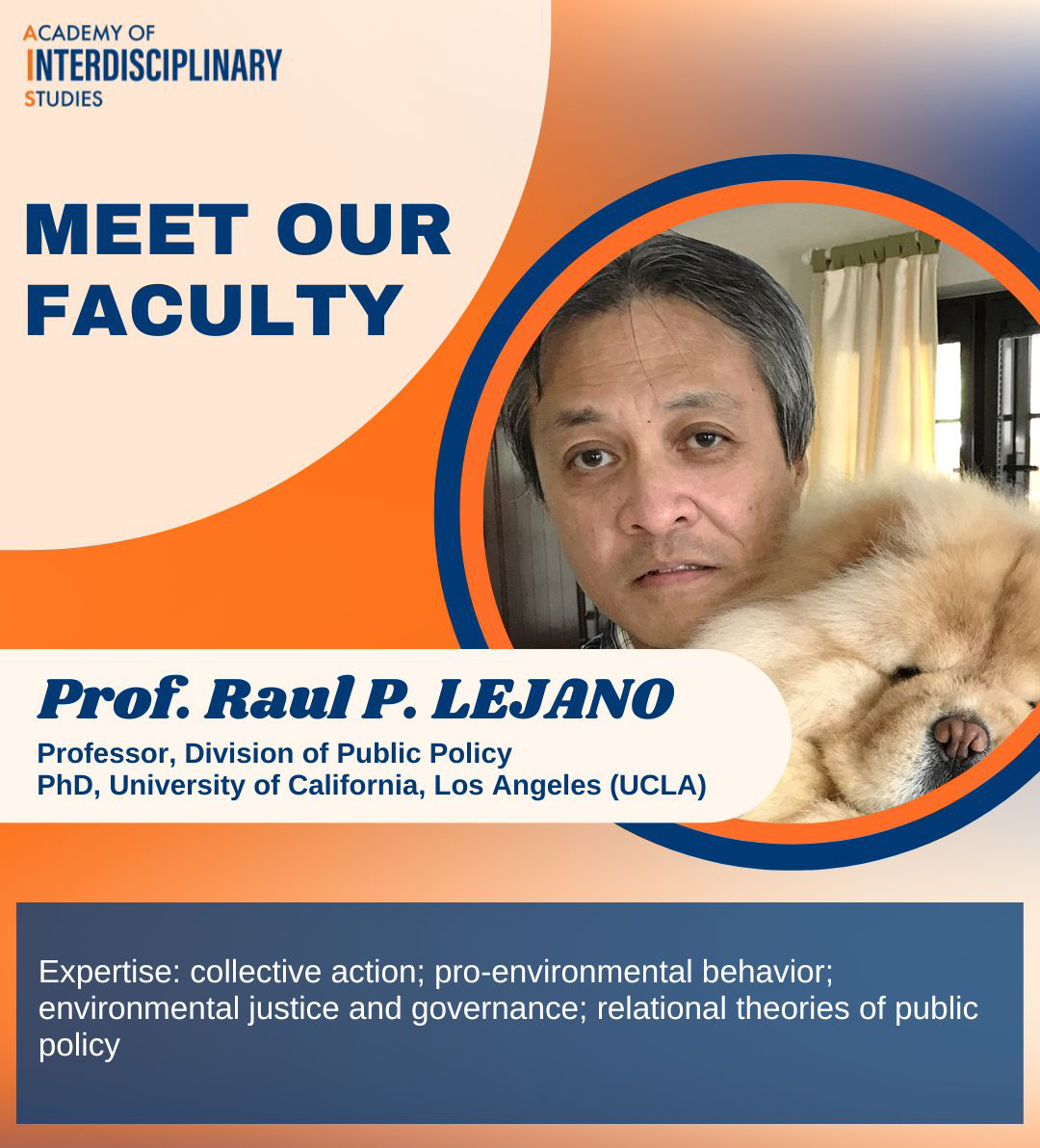Here is our second installment of the "Meet Our Faculty" series!
Let's explore the inspiring research journey, vision and aspiration, as well as a fun fact about Prof. Raul P. LEJANO (Professor, Division of Public Policy).
Could you tell us more about you?
A month ago, I was a professor at New York University. Now, I'm happily part of HKUST's Division of Public Policy (PPOL). I am a policy theorist. Bringing my policy ideas to an institution of science and technology is a wonderful opportunity. I began my professional career as an engineer and moved to policy, which was more interesting and challenging for me. Part of my mission is to communicate to the public how, to understand policy, one must appreciate the non-quantifiable, interpretive, ethnographic aspects of it. Often, engineers will think of policy analysis and decision-making as something that, ideally, could be captured in a set of equations --this is simply wrong, and my job is to help scientists and engineers understand this. Otherwise, they have no clue what policy analysis means and what social scientists do. My research spans a lot of areas, but my most recent, most important contribution is a new book entitled Caring, Empathy, and the Commons: A Relational Theory of Collective Action (Cambridge University Press). This semester, I will be teaching PPOL 5160, a graduate research methods course.
What inspired you to specialize in this line of research?
Classically, policymaking is thought of as a strictly rational exercise (meaning, some maximand is maximized). In reality, however, policy is a highly relational phenomenon, and the tragedy is that institutions are designed upon the reductionistic rational ideal. So, I aspire to formalize the relationality of policy. In the field, I do much research on risk communication, especially engaging multiple publics (especially the most vulnerable) in becoming risk communication agents. Our fieldwork takes place in many areas, such as the Rohingya refugee settlements in Bangladesh, urban informal communities along the coast in the Philippines, and New York City. What inspires the fieldwork is the realization that too many in policy academia, including myself, have been content to simply create self-contained, citation-generating discursive communities, and it's time we joined in work on the ground, especially working with the most marginalized.
What impact do you want your work to have on society?
I hope to help people, especially those in the policy realm, to realize that people are characterized not so much by cogito ergo sum but, rather, curae ergo sum (we care, therefore we are). We need to strategize around how to connect the disconnected and to take advantage of our natural tendency toward empathy and other-regard in solving the world's most pressing problems. My collaborative engagements in the field are built around the hope that we begin to understand the most marginalized as not mere objects of policy and risk communication, but active, self-actualizing, agents who have a great capacity to improve policymaking and policy implementation.
Do you have any advice for students interested in your research area?
Learn to be reflective about the everyday realities of society. Learn how to do critical analysis, and think more phenomenologically. Learn to critique the structured illogicalities of society, such as white privilege and nativism and masculine ideologies.
Could you share a fun fact about you?
As a grad student, I worked with the late, great game theorist, Lloyd Shapley and, indirectly through him, also engaged with the ideas of his friend John Nash (of the movie, A Beautiful Mind). I solved a problem (n-person cooperative games with nontransferable utility), and came up with the proof, that even they did not solve. (Not to pat myself on the back; as Shapley said, actually your proof is pretty easy.)





